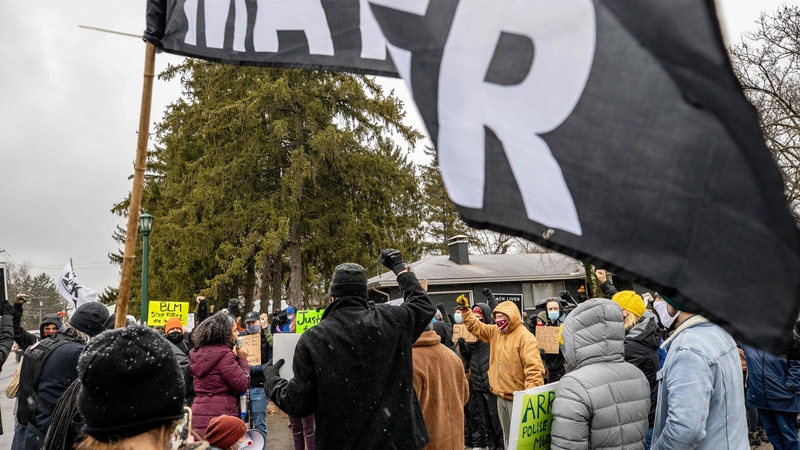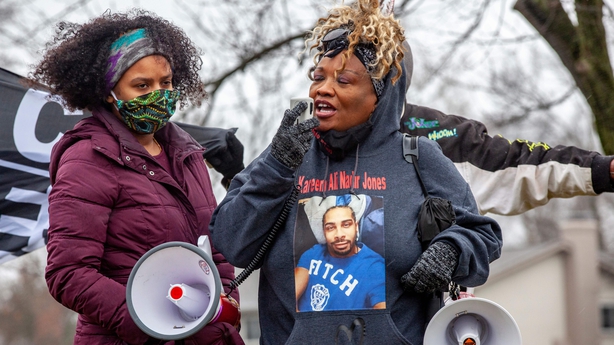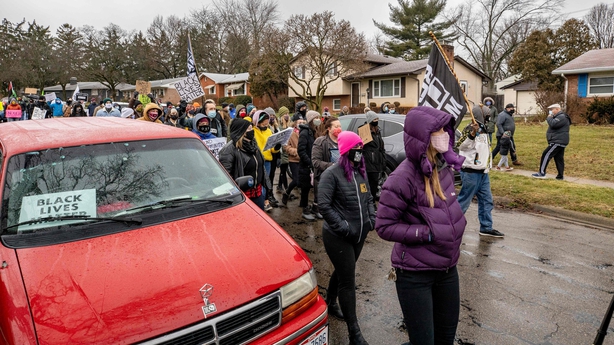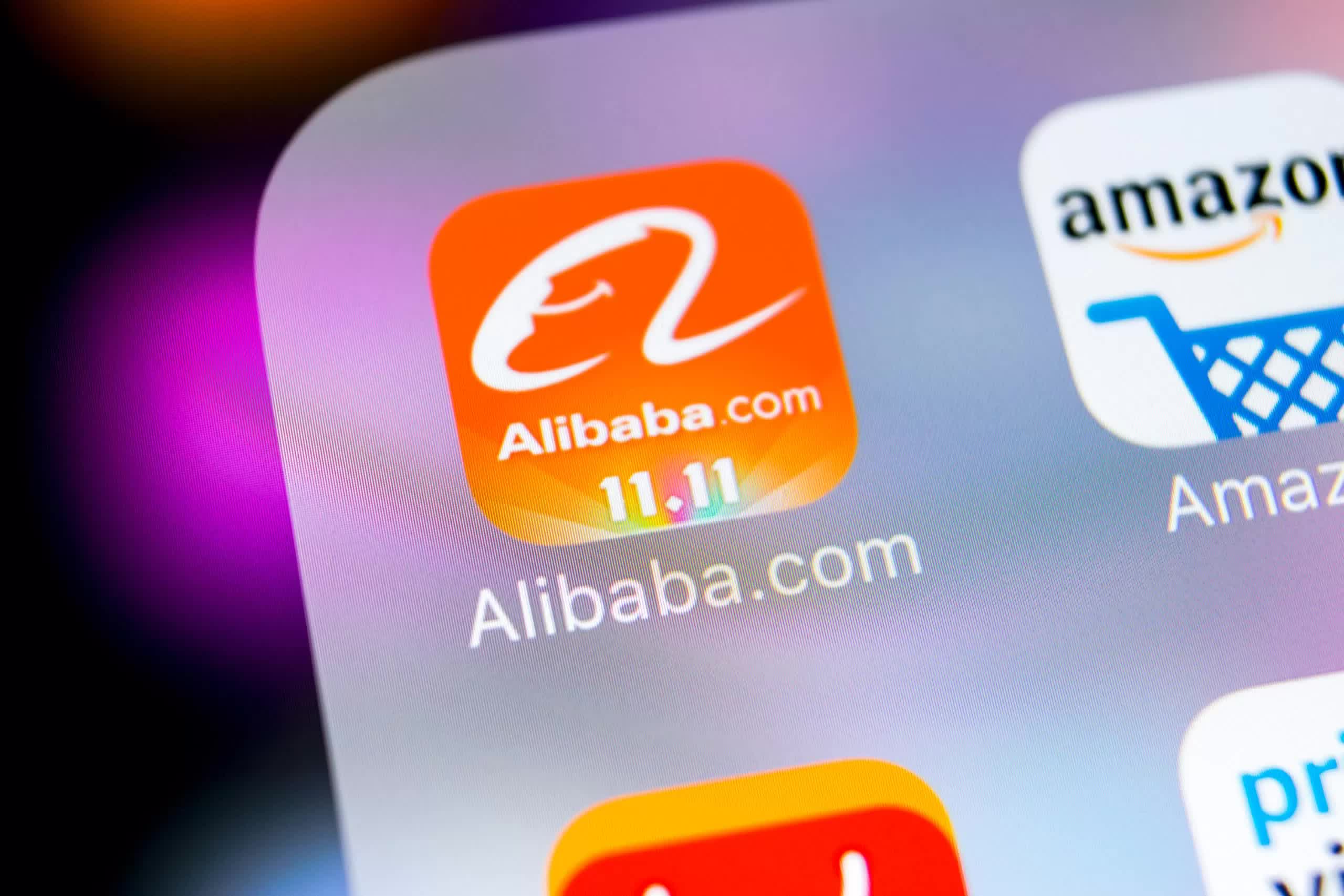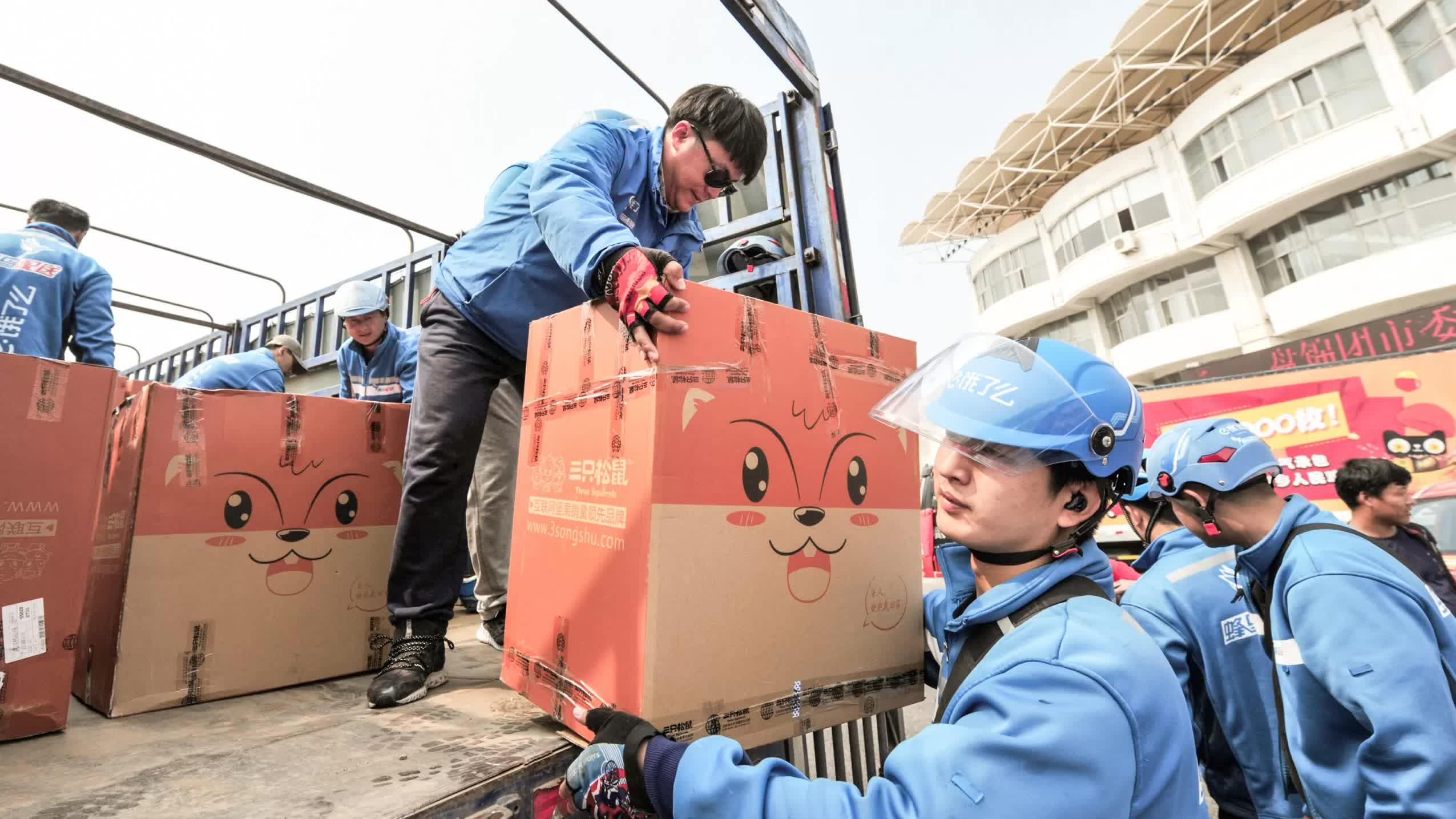The victory in local elections of a coalition of parties opposed to New Delhi's policies in Kashmir is being seen in the region as a wakeup call for the Indian government.

Activists of Jammu and Kashmir National Conference party listen to their party chief during a meeting held a day after the local elections in the region
The People's Alliance for Gupkar Declaration (PAGD), an amalgam of seven political parties that is pro-India but favors self-governance in Kashmir, won 112 out of a total of 280 seats in District Development Council elections, which were held in a staggered eight-phase process from November 28 through December 19.
Prime Minister Narendra Modi's Hindu nationalist Bharatiya Janata Party (BJP) won 74 seats. Independent candidates won 49 seats.
The BJP has a very small base in the Kashmir Valley, the heart of the decades-old anti-India insurgency, where it got only three seats. Most of the other BJP seats come from four Hindu-majority districts in the Jammu area where it has significant support.
Over 51% of nearly 6 million eligible voters across the region's 20 districts cast their ballots, the Election Commission said, calling the vote "the biggest festival of democracy." Results for a few remaining seats will be announced later.
"This election was dominated by an ideological battle rather than local issues. It is a resounding rejection of all that New Delhi has purportedly done in Jammu and Kashmir this time," Nissar Ahmad Sheikh, an independent candidate, told DW.
Watch video 11:28 How India reshaped Kashmir by revoking Article 370
First vote after contentious status change
The vote was the first democratic political exercise in the region after Modi's administration revoked its special constitutional status in August 2019 and split the area into two union territories directly governed by the federal government in New Delhi. The government also removed protections for locals when it comes to land acquisition and jobs in Kashmir.
The election for local bodies is part of a process in which residents directly elect their village representatives, who then vote to form development councils for clusters of villages. Members for the larger District Development Councils are also directly elected but they have no legislative powers and are only responsible for economic development and public welfare.
Many of the BJP opponents in the alliance accused the government of preventing them from campaigning and detaining some of them. Officials have denied the allegations.
Modi's party flew some of its top national leaders and cabinet ministers to the troubled region and organized dozens of rallies to bolster its campaigning and broaden its base mainly in the Kashmir Valley. The BJP declared the results as a referendum in favor of its August 2019 changes.
A rejection of Delhi's move
Some regional politicians and observers say the results of the vote signaled rejection of New Delhi's constitutional changes in Kashmir and a rebuff to the Modi government, which has labeled the PAGD alliance a "gang" and its leaders "anti-nationals" and "looters."
"The verdict is an important development. We are fighting a democratic battle to undo New Delhi's August 5, 2019, measures. The people have now spoken and it's for those who believe in democracy to pay heed to these voices," Omar Abdullah, Kashmir's former top elected official and an alliance leader, told DW. Abdullah's National Conference party managed to secure 67 seats.
Mehbooba Mufti, the leader of the Peoples Democratic Party, said the results made it clear that the people have voted for the Gupkar alliance and rejected New Delhi's "unconstitutional" decision to revoke the region's special status.
Calling the victory "hard earned," Mufti tweeted: "I was illegally detained thrice over the course of a fortnight. PAGD candidates were locked up in a government building while others barred from canvassing. Despite all these obstacles PAGD emerged as winner."
Srinagar-based political analyst Sheikh Hussain shared a similar view. "The PAGD alliance stood firm against the strong-arm tactics of the ruling BJP. The message sent out is loud and clear and the people have spoken," he told DW.
A win for democracy?
For its part, the BJP described the election outcome as a win for democracy and said that it had managed to significantly increase its share of the vote.
"The people of Jammu and Kashmir have spoken out against terrorism and separatism and voted in favor of democracy and nationalism," federal minister Anurag Thakur, who was actively involved in the BJP campaign, told reporters in Jammu.
Kashmir is divided between India and Pakistan and both rivals claim the region in its entirety. Rebels have been fighting against Indian rule since 1989. New Delhi accuses Pakistan of sponsoring Kashmiri militants, a charge Pakistan denies. Tens of thousands of civilians, rebels and government forces have been killed in the conflict.

INDIA-PAKISTAN RIVALRY: KASHMIRIS PAY A HIGH PRICE
An unprecedented danger?
On February 27, Pakistan's military said that it had shot down two Indian fighter jets over disputed Kashmir. A Pakistani military spokesman said the jets were shot down after they'd entered Pakistani airspace. It is the first time in history that two nuclear-armed powers have conducted air strikes against each other.
MORE PHOTOS
1234567891011
The scrapping of the region's special status last year sparked widespread unrest, prompting Indian security forces to enforce strict curfews and curtail public movement.
PM Modi insisted that the decision was needed to halt conflict and boost economic development in Kashmir. However, many Kashmiris consider the policy to be part of a systematic campaign of minority oppression by India's Hindu nationalist government.
According to a government report, incidents of terrorism in Jammu and Kashmir have declined by over 35% since the special status was scrapped.
Officials say the discriminatory and unjust state laws have either been repealed or modified and the administration listed its achievements for its concept of a "New Kashmir" to ensure social development, economic revival and employment generation.
Despite the election, locals remain pessimistic about the region's future and expect little change on the ground. They argue that surveillance and repression have increased over the past year. And the feeling of being disenfranchised by New Delhi's moves to alter the region's status without consulting them and subsequently to deny basic rights to justice, freedom of speech, access to education and the internet, has left them in despair.
It's uncertain how things will pan out in India-administered Kashmir in the coming months, but many say the outcome of the recent elections was an expression of the popular will of the people.










